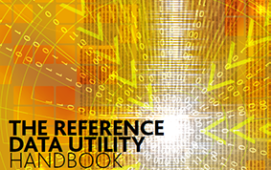
A Portuguese sustainability management software provider has set itself the daunting task of compiling a database that will eventually provide a base level of ESG information on every small business in the world.
Lisbon-based start-up C-More has created a platform that helps small and midsize companies assess their own ESG maturity and learn how to improve their performance and collect the data necessary for regulatory reporting. As well as being used to offer advice and other services to those clients, the data is also being incorporated in a database that investors can use to manage their own sustainability portfolios and risk strategies.
“The performance of SMEs matters tremendously because a lot of the investment community is focused on companies that are not public or not obliged to make this data available,” C-More chief business officer Kristoffer Tarp told ESG Insight.
Established in 2019, C-More is using a combination of AI and its own team’s academic talents to build the database. Information is collected initially from public sources and from the companies with which it engages. Those companies are largely suppliers to listed firms and they also have their own suppliers, on whom they also offer data. This two-way exchange of advice in return for data helps incentivise companies to improve their reporting processes.
In that way a snowballing effect of data sharing is established that Tarp said will enable C-More’s database to reach a critical mass quickly. Already it has information on more than 10,000 businesses “and that has happened very rapidly”, he said.
Data Quality
Tarp said C-More is driven by a desire to improve the quality of ESG data across the finance sector and that starts with the smallest companies who will generate the granular information that will eventually coalesce into the broader datasets that investors need.
“What I hope is that the industry will start focusing on turning that data into something that is actionable,” he said. “I think there’s quite a big risk that if it’s all about compliance and regulations and the ability to provide the data, you’re going to miss the real point here, which is the data should drive change.
“Otherwise, we run the risk of this becoming something that is perceived as not particularly value adding and for a company that needs to generate a profit, then of course that will always stick at the bottom of a very long list of priorities.”
ESG Antennae
C-More was co-founded and still jointly led by Carolina Almeida Cruz and Carina Abreu. Cruz studied psychology, finance and management before beginning her career at the International Labour Organisation (ILO). Her ESG antennae were first excited as a field worker overseeing human-trafficking programmes in emerging markets.
Cruz eventually began working within finance and was involved in the issuance of Portugal’s first social bond through the justice ministry. She now splits her time outside of C-More between a number of organisations dedicated to related goals, including the Portuguese Data Science Association, on which she is a vice-president and as an ambassador for The Unconnected, a social enterprise that seeks to bring internet access to remote impoverished communities.
Tarp joined C-More in May after a career holding senior sustainability roles in several organisations including NTT Data after having worked for the UN Development Programme, UNICEF and other development organisations.
Game Changer
C-More’s aim, initially, was not to provide services to investors, but that is “sort of where we have ended up” as a result of the company’s early platform being recognised as a potential gamechanger by the company’s tech giant partner IBM.
The mission to gather ESG performance data from the world’s small- and medium-sized companies was born of Cruz’s realisation in her work among the underprivileged that sustainable finance could help those companies best but was serving their needs the least.
Small businesses, she told a recent Co-Labs gathering in London, are the economic glue that keeps economies running. However, directing finance to improve their ESG performance is difficult because they are largely exempt from existing and incoming disclosure rules.
That’s set to change because they make up a large proportion of listed companies’ supply chains, meaning their ESG metrics will be needed as soon as Scope 3 reporting regulations are in place. The implementation of the EU’s Corporate Sustainability Reporting Directive (CSRD), which includes such supply-chain data requirements, is expected to bring information on about 50,000 European companies into the public realm.
Ideal Location
Tarp is convinced that C-More’s Portugal location is beneficial to achieving the company’s goals. The nation’s financial market is advanced and globally integrated but relatively small, meaning that innovations can be sandboxed and nurtured to a high level of maturity before scaling them internationally. It also has a supportive pro-tech government and banking sector, Tarp said. In the new year, C-More will open an office in Denmark to be closer to companies at the forefront of ESG data collection, reporting, and sustainability management.
Further down the road, C-More hopes to use the data it has amassed to create new ESG metrics, including a suite of tools that link ESG performance to financial performance, a correlation that Tarp said has often been touted but for which there is no single, authoritative evidence when it comes to SMEs.
“Being able to, at one point, say what it actually means to be a good ESG performer in terms of operational and financial performance, will of course be really interesting for understanding risks in your portfolio and for looking at potential investment theses,” he said.
Subscribe to our newsletter



